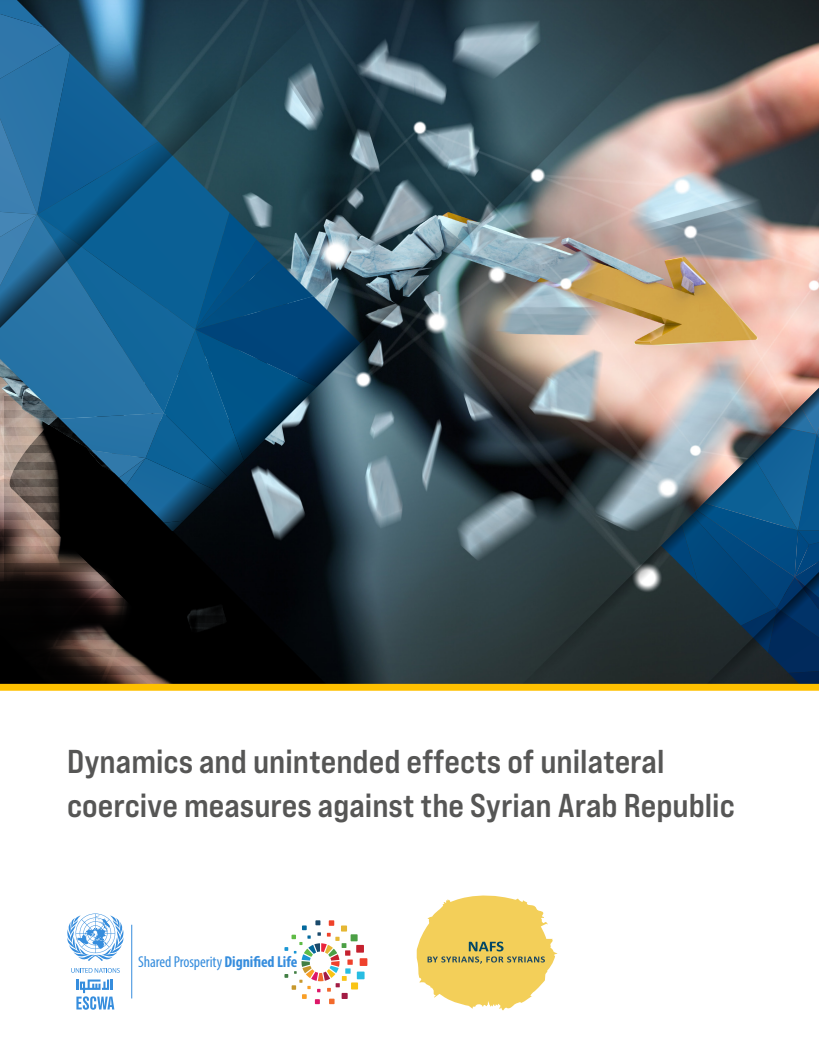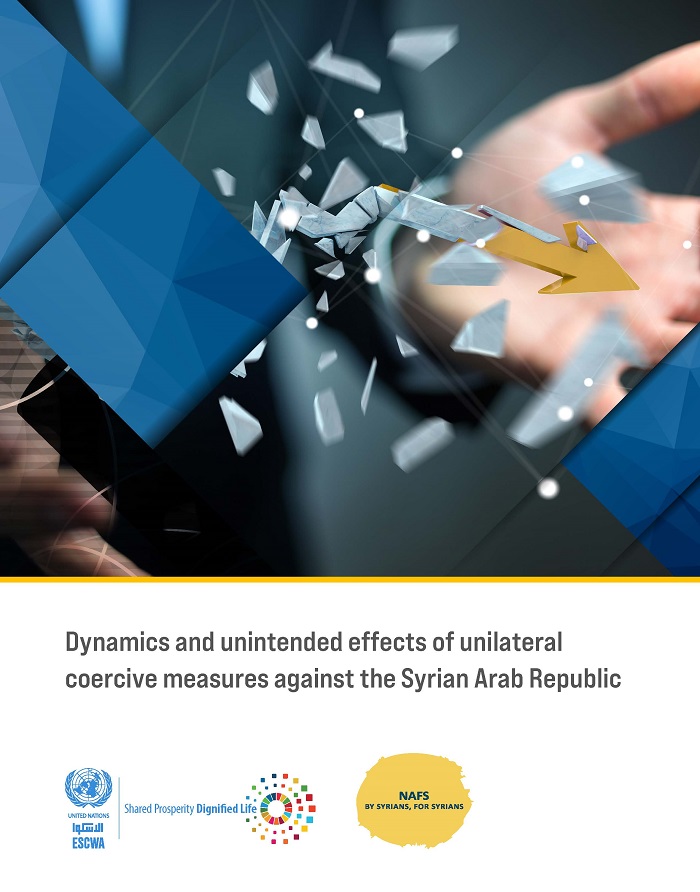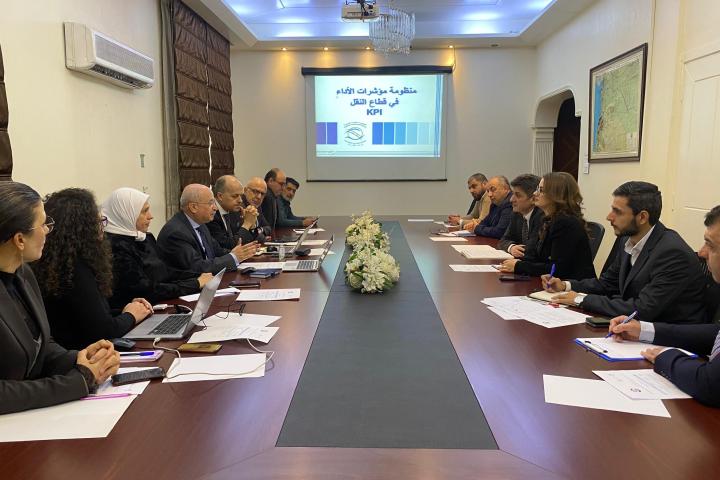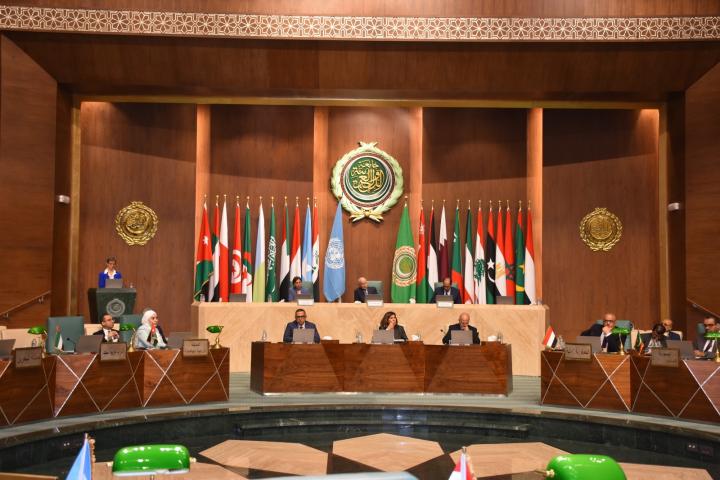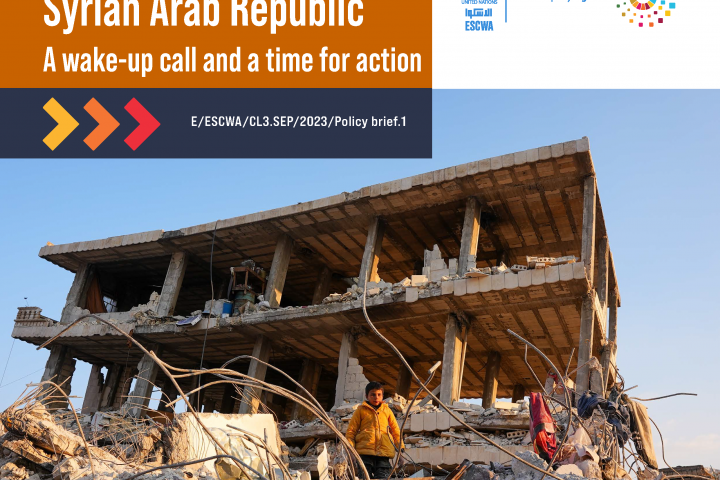Beirut, 12 July 2024--The United Nations Economic and Social Commission for Western Asia (ESCWA) has released today a report titled “Dynamics and Unintended Effects of Unilateral Coercive Measures (UCMs) against the Syrian Arab Republic,” shedding light on the impact of these sanctions on various aspects of people’s life in Syria.
Dina Melhem, head of the National Agenda for the Future of Syria (NAFS) project at ESCWA, emphasized the significance of the findings, stating, “Our report provides a detailed look into how UCMs have unintendedly affected the lives of ordinary Syrians, particularly access to essential sectors such as healthcare, education, food security, agriculture, WASH, and humanitarian assistance. By unintended impact of sanctions, the study means impacts falling outside of the stated objectives of the UCM measures as formally adopted.
The report captures the perceptions of 1,179 Syrian respondents, distributed across the whole of Syria. It also includes insights from semi-structured interviews with practitioners and experts.
The key findings of the report reveal that a 66% of survey respondents across the whole of Syria expressed opposition to the sanctions, highlighting their adverse effects on their daily life regardless of gender, education, age, political affiliation, or region. Even respondents who supported the sanctions recognized their negative impacts on their livelihoods.
Melhem pointed out that “Respondents indicated that UCMs often miss their targets who can circumvent the sanctions, while disproportionately affecting the general population.”
The findings emphasize that UCMs, besides other factors, disrupt provision of essential social services and humanitarian aid, directly reducing access to medical supplies, import of equipment, WASH, and educational materials, and indirectly through “chilling effects” and over-compliance issues, due to fear of being hit by the sanctions, independently from the existing exemptions. Over-compliance significantly undermines the effectiveness of these exemptions, impacting financial transactions, contracting, procurement, imports, and humanitarian operations. The shortage or unavailability of certain goods in the country affect directly essential services, availability and cost of inputs for people’s livelihoods. For example, the production of pharmaceutical products, which used to be manufactured domestically under licenses from foreign companies, has been canceled due to sanctions, and there are greater barriers to importing machinery and inputs for agriculture.
The report calls for efforts to limit over-compliance and chilling effects associated with UCMs and stresses the importance of continuous dialogue with relevant stakeholders, including humanitarian organizations, to address the unintended repercussions of sanctions and to facilitate recovery-related transactions and activities for resilience building and effective stabilization efforts, thereby enhancing sustainable livelihoods. Establishing oversight mechanisms to monitor the effectiveness of sanctions and propose improvements is also recommended. Additionally, it calls for providing clear regulations and information on permitted trade and procedures for smooth humanitarian operations, as well as ensuring access to legal aid or services for dealing with multiple sanctions regimes.
The report calls for a comprehensive and nuanced approach to mitigate the unintended effects of UCMs and safeguard the resilience of the Syrian population and its livelihood.
***
About ESCWA
One of five United Nations regional commissions, ESCWA supports inclusive and sustainable economic and social development in Arab States, and works on enhancing regional integration.
For more information:
- Ms. Maryam Sleiman, Public Information Assistant, +961-81-769-888; email: sleiman2@un.org
- Ms. Rania Harb, Public Information Assistant, +961-70-008-879; email: harb1@un.org
